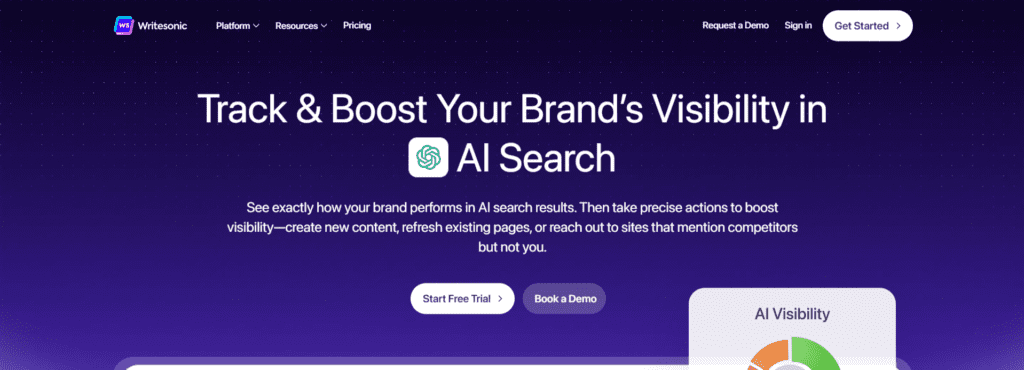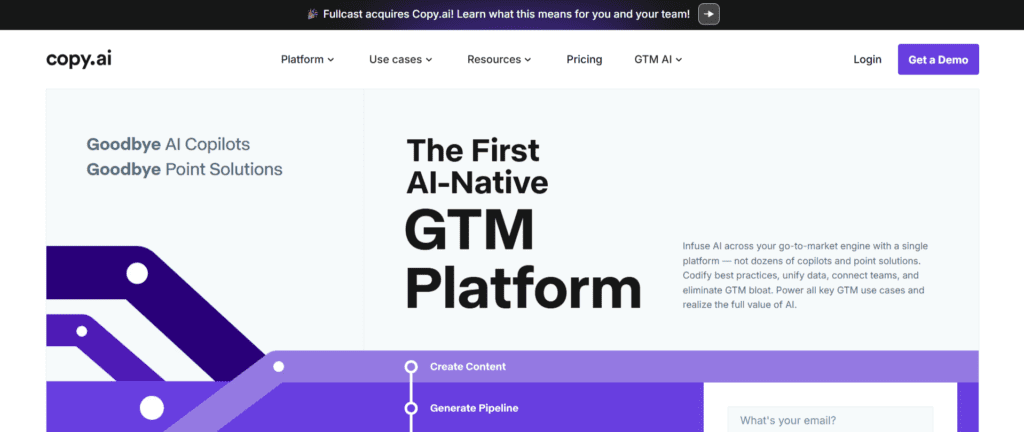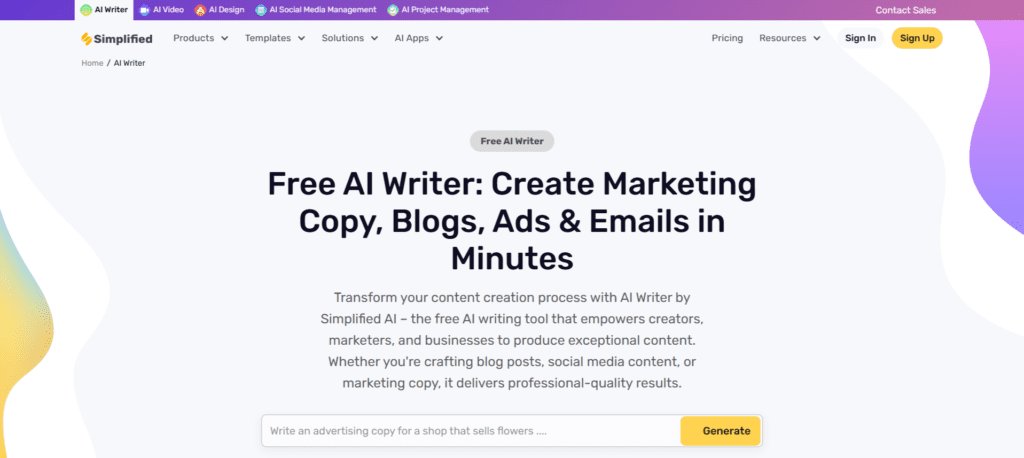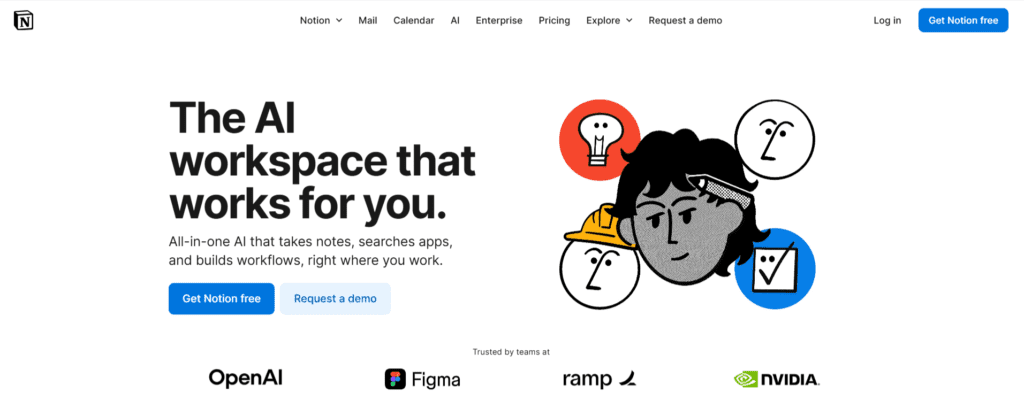Introduction
Artificial intelligence has already changed how we design, code, and communicate — and now it’s reshaping how we write. In 2026, AI blog generators can create an outline, write a 1,500-word article, and even suggest headlines or SEO keywords within minutes.
But an important question remains: Can AI truly write blogs that rank, engage, and convert?
This guide explores the most popular AI blog-writing tools — how they work, their limitations, and how marketers and creators can combine them with human expertise to achieve professional-quality content.
What Is an AI Blog Generator?
An AI blog generator is a platform that uses large-language models (LLMs) such as GPT-4 or Claude 3 Opus to produce long-form content automatically.
It can:
- Generate outlines, headlines, and full paragraphs
- Suggest keywords or optimize meta tags
- Adjust tone and style (professional, casual, storytelling)
- Translate or repurpose existing content
However, output quality heavily depends on how well you instruct the AI. If your results feel generic, learning AI prompt writing techniques can significantly improve structure, clarity, and relevance in AI-generated blogs.
While these systems can accelerate production, they still rely on human prompts and editorial supervision for accuracy, tone, and originality.
Top AI Blog Generators in 2026
Below is a curated list of free and paid tools with specs, pricing, and ideal use cases.
1. Jasper AI

Best for: Professional marketers & SEO teams
Specs:
- 50 + writing templates (blogs, ads, product pages)
- Brand Voice & Style Guides
- Collaboration dashboard
- Integrations: Surfer SEO, HubSpot, WordPress
Pricing: 7-day trial → paid plans from $39 / month
Pros:
- Consistent tone across all content
- Strong for long-form blogs and campaigns
- Great for agencies
Cons:
- No free forever plan
- Sometimes over-optimizes for keywords
2. Writesonic

Best for: Fast SEO blog generation
Specs:
- GPT-4 Turbo + Sonic Editor
- SEO meta generator, outline builder
- One-click publishing to WordPress or Zapier
- Integrates with Surfer SEO
Pricing: Free plan (10 credits/month); paid from $16 / month
Pros:
- Excellent SEO structure
- Fast, factual drafts
- Affordable
Cons:
- Limited credits on the free plan
- Fewer creative styles
AI tools like Writesonic can speed up content creation, but marketers should still evaluate originality. To understand whether AI-written content can be detected by platforms or search engines, refer to our in-depth analysis on AI content detectors and how reliable they actually are.
3. Copy.ai

Best for: Marketing blogs & social campaigns
Specs:
- Free plan (2k words/month)
- Workflow automation for multi-post series
- Blog Wizard for outlines + drafts
- Integrates with Google Docs & Notion
Pros:
- Clean UI + no learning curve
- Team collaboration
- Best for short and mid-length blogs
Cons:
- Word cap resets monthly
- Not ideal for technical content
4. Simplified AI Writer

Best for: Design + content creation in one place
Specs:
- 2k free AI words/month
- 50 + blog and social templates
- Grammar and tone tools
- Native design & publishing features
Pros:
- Combines writing + graphic creation
- Simple for small teams
- Integrated scheduler
Cons:
- Free plan limited
- Output requires SEO editing
5. ChatGPT (Free & Plus)

Best for: Custom blog drafting & idea generation
Specs:
- GPT-3.5 (free) or GPT-4 (Plus $20 / month)
- Generate topic ideas, headlines,and FAQs
- Integrations via Zapier or browser extensions
- DALL·E integration for featured images
Pros:
- Unlimited versatility for research and drafting
- Ideal for content planning and outlines
- Free to start
Cons:
- Needs manual fact-checking and SEO editing
- No built-in plagiarism or tone scoring
Already using ChatGPT for outlines or drafts? You’ll get better results by pairing it with structured prompts or dedicated prompt tools. Our guide to the best AI prompt generators helps you generate clearer instructions for more human-like blog output.
6. Content at Scale

Best for: Agencies needing bulk long-form content
Specs:
- Generates SEO-ready 2k+word blogs automatically
- Detects AI patterns to bypass AI detectors
- Keyword mapping and internal link suggestions
Pricing: Paid plans from $49 / post; trial credits available
Pros:
- Human-like long-form structure
- Excellent for niche blogs
- Built-in plagiarism scan
Cons:
- Price per post model
- May require light manual formatting
Tools that claim “human-like” output still benefit from review. To further reduce robotic tone and improve readability, many editors now use AI humanizer tools to refine AI-generated drafts before publishing.
7. Hypotenuse AI

Best for: E-commerce blog & product copy
Specs:
- AI blog + product description generator
- Bulk generation for SKU pages
- Built-in fact-checking assistant
Pricing: Free trial; plans from $29 / month
Pros:
- Combines blog + catalog content
- Ideal for Shopify stores
- SEO-friendly outputs
Cons:
- Limited creativity in the free tier
8. Scalenut

Best for: SEO research + AI blog writing
Specs:
- Cruise Mode for end-to-end blog creation
- Keyword cluster research + SERP analysis
- AI content optimizer score
Pricing: 7-day free trial; plans from $39 / month
Pros:
- SEO and writing in one platform
- Competitive data insights
- Ideal for content strategists
Cons:
- Trial outputs limited
- The interface is busy for beginners
9. INK for All

Best for: SEO + AI copywriting with plagiarism check
Specs:
- AI writing assistant + SEO optimizer
- Plagiarism + AI detection built in
- Chrome extension + WordPress plugin
Pricing: Free plan with word cap; paid from $39 / month
Pros:
- All-in-one SEO suite
- Strong content safety features
Cons:
- Limited free quota
- Outputs less creatively
10. Notion AI

Best for: Writers and teams organizing ideas
Specs:
- Built into the Notion workspace
- Generates paragraphs, outlines, and summaries
- Great for brainstorming + editing
Pricing: Free for Notion users with limited calls; add-on from $8 / month
Pros:
- Seamless for knowledge teams
- Excellent for drafting short posts
Cons:
- Not a dedicated blog generator
- Formatting limited
Notion AI is great for brainstorming. But for businesses that need consistent blog output and ranking content, our Blog Writing Service ensures every post is optimized, human-edited, and aligned with your goals.
How Good Are AI Blog Generators Really?
AI blog tools can produce drafts faster than any human, but they lack:
- Experience: They don’t draw on personal insights or original data.
- Authority: Google’s E-E-A-T framework still rewards verified expertise.
- Depth: Complex topics need human context and editing.
The sweet spot lies in AI + human collaboration — use AI for speed and structure, and humans for creativity and credibility.
Best Practices for Using AI Writers Safely
- Add real examples and data to each post.
- Check facts and sources — AI can hallucinate.
- Run AI detection + plagiarism tests.
- Blend tone + storytelling to avoid monotony.
- Optimize SEO manually — titles, links, schema, internal structure.
Conclusion
AI blog generators have evolved from gimmicks to indispensable tools for marketers and creators.
They can handle outlines, keyword mapping, and first drafts — but they can’t replace your voice, research, or expertise.
If you’re a beginner, start with Copy.ai, Writesonic, or ChatGPT Free.
If you’re a brand or agency, explore Jasper, Content at Scale, or Scalenut to scale content with strategy.
Reliqus Consulting helps businesses leverage AI for SEO and content without losing authenticity. Contact us to build your AI-powered content system.
FAQs
Q1. Can AI replace human blog writers?
No — AI can speed up drafting but needs human editing for depth, emotion, and accuracy.
Q2. Which is the best AI blog generator for SEO?
Writesonic, Scalenut, and Content at Scale produce SEO-optimized blogs with keywords and meta tags.
Q3. Are there completely free AI blog generators?
Yes — Copy.ai and Simplified offer free plans; ChatGPT Free works well for manual drafting.
Q4. Is AI-generated content good for Google ranking?
Yes, if it meets Google’s E-E-A-T criteria and provides original value and expert editing.
Q5. How can I make AI blogs sound human?
Add personal stories, quotes, local context, and authentic examples to balance AI’s neutral tone.
